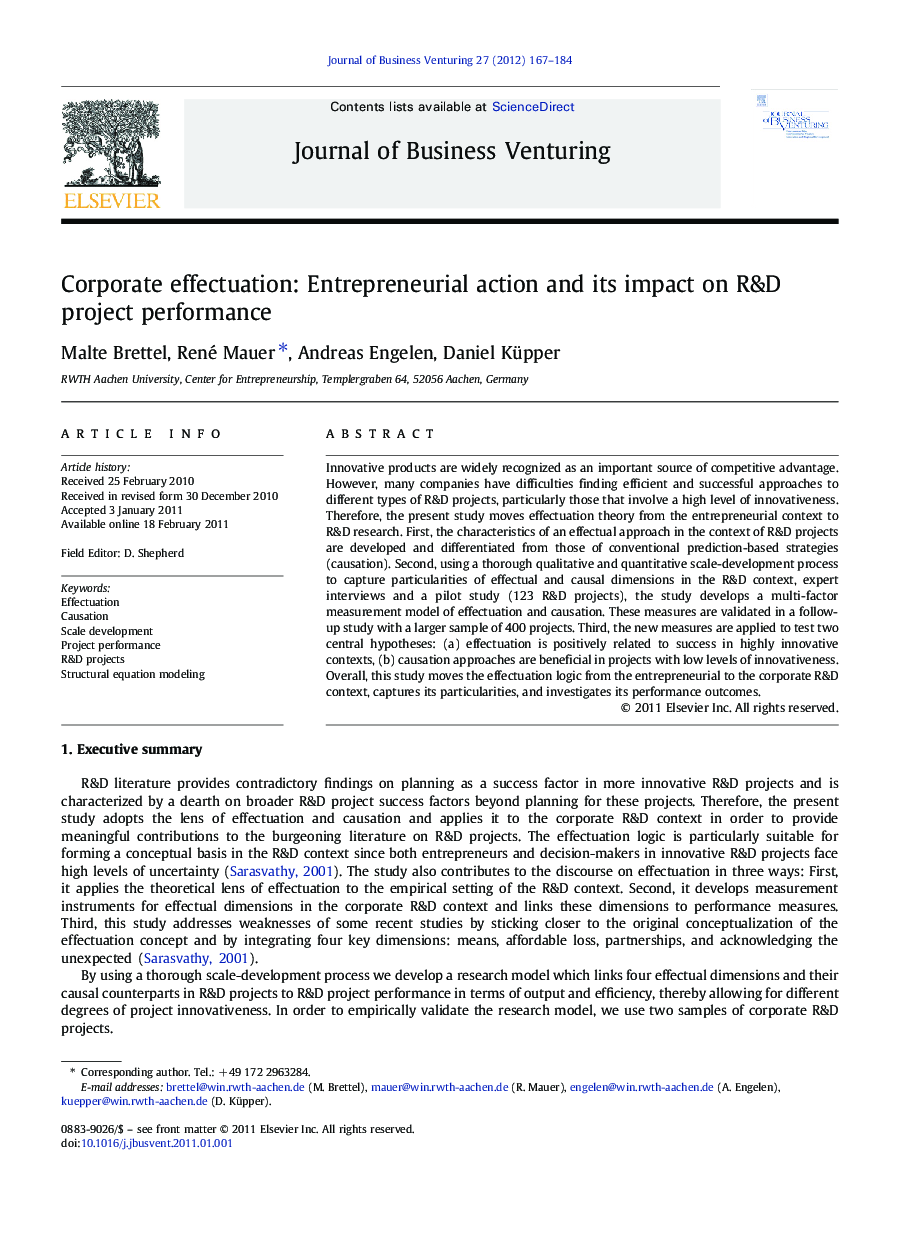| Article ID | Journal | Published Year | Pages | File Type |
|---|---|---|---|---|
| 1019549 | Journal of Business Venturing | 2012 | 18 Pages |
Innovative products are widely recognized as an important source of competitive advantage. However, many companies have difficulties finding efficient and successful approaches to different types of R&D projects, particularly those that involve a high level of innovativeness. Therefore, the present study moves effectuation theory from the entrepreneurial context to R&D research. First, the characteristics of an effectual approach in the context of R&D projects are developed and differentiated from those of conventional prediction-based strategies (causation). Second, using a thorough qualitative and quantitative scale-development process to capture particularities of effectual and causal dimensions in the R&D context, expert interviews and a pilot study (123 R&D projects), the study develops a multi-factor measurement model of effectuation and causation. These measures are validated in a follow-up study with a larger sample of 400 projects. Third, the new measures are applied to test two central hypotheses: (a) effectuation is positively related to success in highly innovative contexts, (b) causation approaches are beneficial in projects with low levels of innovativeness. Overall, this study moves the effectuation logic from the entrepreneurial to the corporate R&D context, captures its particularities, and investigates its performance outcomes.
Research highlights► We develop a scale for effectuation and causation in the corporate R&D context. ► We examine the impact of effectuation and causation on R&D project performance. ► The R&D projects differ in their degree of innovativeness. ► Effectuation is positively related to success in highly innovative R&D projects. ► Causation approaches are beneficial in projects with low levels of innovativeness.
